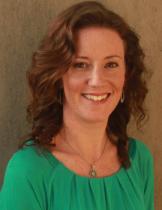Building a robust evidence-based research community: Strengthening pathways for African researchers

Between 2005-2015, only 25 percent of articles on Africa published in the top five economics journals had at least one Africa-based author or co-author. While this is only one dimension of measuring diversity, it is exemplary of a broader, critical trend: the field of economics has a diversity problem.
Researchers from many groups, including people from low- and middle-income countries, are underrepresented in the field of economics and face numerous barriers to growth in the field, including limited access to research funding, professional networks, and training.
Beyond the ethical imperative to increase the diversity of researcher backgrounds, perspectives, and opinions in economics, bringing more voices into the field will also lead to a richer body of evidence. Individuals who have an intricate knowledge of a country and connection to local authorities are better placed to identify policy-relevant research questions and ensure research findings are used effectively.
At J-PAL Africa, we are continuously reflecting on what more we, as a research network, funder, trainer, and policy advisor, can be doing to support and amplify the voices of local scholars. How can J-PAL Africa strengthen our support pathways for local research? What more can we do to encourage the next generation of African scholars who can lead the research agenda on the continent?
Accessing funding: J-PAL initiative funding for African Scholars
Access to adequate research funding is a key for many researchers. This barrier is particularly salient for large research projects such as randomized evaluations, which can be more costly to carry out than projects that use alternative research methods.
To address these barriers, in 2019 our Digital Identification and Finance Initiative (DigiFI) launched J-PAL's first African Scholars Program, which offers a dedicated pool of resources specifically targeted towards African scholars.
The program extends research funding eligibility to resident African scholars—individuals who have completed their PhD in economics or a related field and who are based at an academic institution in Africa—and non-resident African scholars—individuals who have completed their PhD in economics or a related field, who completed high school in Africa, and who are based at an academic institution outside of Africa.
Project teams awarded funding are then paired with a J-PAL affiliate who acts as a mentor (and explicitly not as a co-author) on the project. Mentors provide strategic guidance and connect Scholars to additional resources.
Since the program’s inception, DigiFI has funded three pilot projects in Ghana and four proposal development grants in Senegal, Nigeria, Ethiopia, and the Gambia led by African Scholars Program participants. Topic areas include understanding take-up of digital ID systems, the linkages between digital IDs and other programs, and the expansion of digital payments. The aim and hope is that these projects will develop into full randomized evaluations in the future.
Building on DigiFI’s success, our Jobs and Opportunity Initiative (JOI) became the second J-PAL initiative to incorporate the African Scholars model into their existing structure. With support from Google.org, the model operates similarly to DigiFI, with only resident African Scholars from sub-Saharan Africa eligible to apply. This new funding stream was launched in August of this year to coincide with the initiative’s Fall 2021 funding round.
Eighteen expressions of interest were received from African scholars from across the continent, including scholars working in Benin, Cameroon, Ghana, Kenya, Malawi, Nigeria, Senegal, South Africa, and Uganda. Funding decisions for this round will be announced in December 2021. This level of interest reflects the high demand among locally-based researchers for research funding in the labor sector.
Prior to adopting the African Scholars model, JOI had already funded five Africa-based researchers as co-principal investigators. Jackline Oluoch-Aridi was part of a research team that received funding for “Cash Transfers as a Response to Covid-19: Experimental Evidence from Kenya,” which has already resulted in a working paper; and Edward Asiedu, Monica Lambon-Quayefio, and co-authors received funding for their project, “Supporting Female Entrepreneurs During a Pandemic.”
The African Scholars model will help JOI meaningfully expand its funding to scholars who are living and working in Africa and help meet demand for financing labor studies in Africa.
Access to networks within J-PAL and the broader economics profession: Mentorship, visibility, and the PhD pipeline
Who you know and what others think of your work in academia can have a transformative effect on a researcher’s academic career. But building professional networks is challenging when your university is located far away from international academic hubs. Finding a pathway into these networks can be difficult; J-PAL has designed a few programs to help decrease the initial barriers to entry.
In addition to providing content feedback, the mentorship component of the African Scholars models under DigiFI and JOI also provides networking benefits. Regular calls between mentor-mentee teams aim to replicate colleague feedback and allow for professional relationships to form. Relationships with mentors can then serve as organic access points to other academics, and resources in their networks.
Lack of research visibility is also a challenge for Africa-based researchers. It is difficult to be connected to a community if others don’t know about your research. Hence, once there are shareable results from African Scholars’ research, we acknowledge more needs to be done to help researchers present and disseminate these findings—online and through academic economics conferences—and are developing plans to support these efforts.
As a start, we'll be publishing a blog series featuring the work of African scholars who have received funding through a J-PAL research initiative, building off of the African Scholar spotlight series started last year. Each will showcase the researcher’s primary research interests, ongoing evaluations, and topics or unanswered questions they see as high-priority for the countries and regions in which they work.
Earlier along the researcher pipeline, African students face barriers when applying to graduate schools, at home or abroad. One of these challenges is finding the right information and not feeling overwhelmed by the many complex steps in the process.
In October 2020 we hosted our first webinar for African predoctoral students, led by J-PAL Africa’s scientific directors, Isaac Mbiti and Tavneet Suri. The webinar shared key information on PhD programs and the application process in a concise and accessible format. A range of universities from the United States were represented, and approximately fifty student-attendees were able to directly interact with academics from the university admissions boards. Following the event’s success last year, we hosted the session again in October 2021, expanding the pool of universities to include two in Canada; more than 70 prospective students were in attendance. We plan to repeat this event every year to support more incoming PhD candidates from the continent.
Access to training opportunities: Building skills to expand use of randomized evaluation methods
Access to training resources for carrying out high-quality impact evaluations is critical to building a robust researcher pipeline. J-PAL is particularly well-placed to assist with training support in experimental research design, tailored feedback on specific research ideas, and practical applications for running experimental research. We are currently piloting a number of different options specifically targeted towards scholars in Africa and continue to grow (and refine) our training portfolio.
To further build skills in experimental research design, J-PAL Africa offers MicroMasters scholarships to African Scholars interested in completing JPAL102x: Designing and Running Randomized Evaluations, along with the other J-PAL MicroMasters courses. JPAL102x takes learners through a series of sessions on designing and implementing randomized evaluations in the field. To date, DigiFI has distributed 19 MicroMasters course scholarships to resident African scholars, resident African PhD students, and government officials in Africa.
This past August, J-PAL piloted a new four-session training on “Conducting Experimental Research” for African scholars. Building on J-PAL’s flagship Evaluating Social Programs course, the sessions were designed to bridge some of the gaps in the practical applications of running experimental research. They provided a technical overview of randomized evaluations and detailed how to develop a research idea, create a survey, and conduct data analysis, while also sharing J-PAL’s library of research tools, templates, and resources. More than 30 researchers from a range of African countries participated.
Generating feedback on project ideas is also an important form of applied training. In addition to matching project teams with academic mentors provides avenues for feedback on research projects, we also provide support through pre-proposal calls to assist with refining the research idea prior to full proposal submission. This is particularly relevant for scholars who are new to a research grant submission process and may benefit from initial proposal feedback prior to the full proposal submission.
In October/November 2021, DigiFI will be piloting its first Idea Incubation Series. The aim of this series is to create practical venues for in-depth discussions on the process of conducting high-quality research, including brainstorming ideas and receiving feedback from DigiFI board members prior to proposal submission.
Learning and evolving: Where do we go from here?
The activities and resources laid out above are just the first of many steps that J-PAL is taking to further increase the representation of African scholars in our research network and in the field of economics as a whole. We do not assume to have all the answers or a perfect roadmap for what comes next, but we are committed to exploring new ways of doing things that shake up the status quo.
Over the coming months and years, the DigiFI and JOI African Scholars programs will serve as models for other J-PAL research initiatives as they further widen access to research opportunities in regions historically underrepresented in economics and specifically in the use of randomized evaluations.
Numerous research initiatives at J-PAL are actively pursuing new funding to build out their own regional scholars programs targeted towards researchers based in their priority regions. The resources and systems developed by DigiFI and JOI can easily be shared now that the groundwork has been laid within J-PAL.
Many other organizations have pledged strong commitments to providing mechanisms and support for locally-based scholars to drive the research agenda on the African continent, including our partner Innovations for Poverty Action, and have called for more concerted action to address these systemic challenges, including Nunn 2019 and Amarante et al. 2021, to name just a few. Acknowledging the complexity and scale of this challenge, we are keen to connect and learn from each other.
In the coming months, we will launch a working group focused on inclusion of African scholars in development research, in collaboration with CEGA and other organizations based locally and abroad. This is designed to be a space that inspires collaboration across groups, assists with coordination across organizations, and enables us to refine J-PAL’s offerings to African scholars while learning from others.


